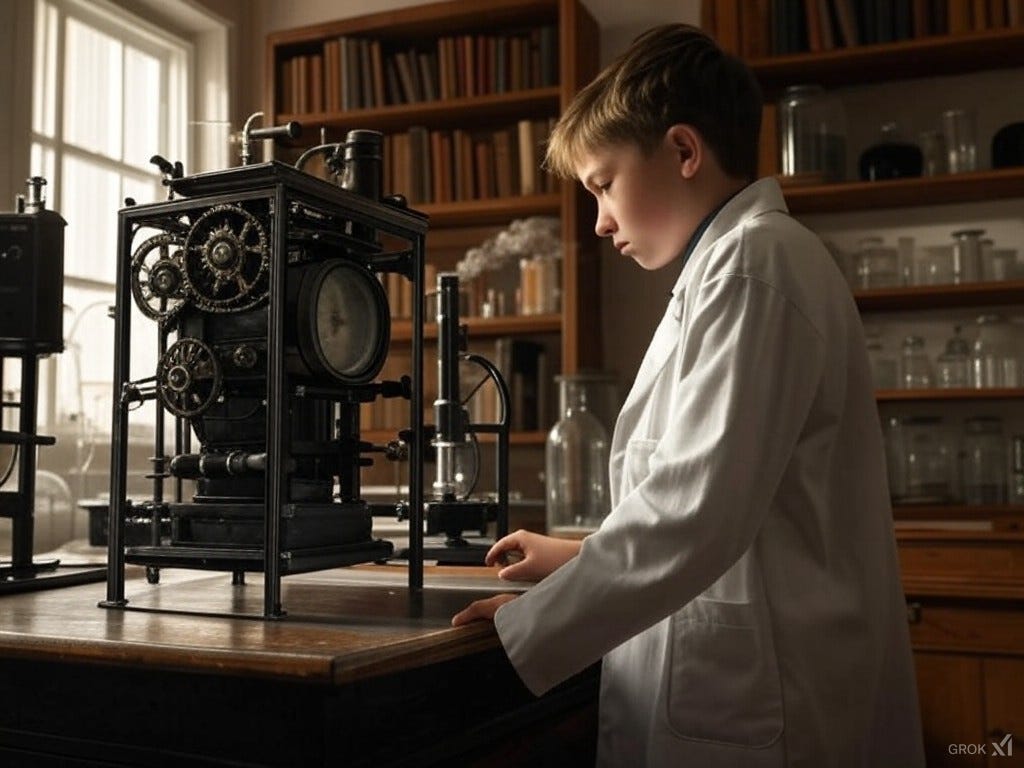Personal Science Week - 250220 ResearchHub
ResearchHub and more ways to interact with other scientists
Professional science is experiencing some of its biggest changes in decades, as the funding structure and many of its core institutions face unprecedented challenges under new leadership.
Change can be opportunity for personal science, especially if you know some of the resources that can circumvent traditional barriers. This week we’ll review two useful ways to access existing research—and publish your own.
ResearchHub for easy interaction with other scientists
Coinbase founder Brian Armstrong in 2019 proposed “Ideas for how to improve scientific research”, an attempt to apply to science many of the tools we take for granted in other internet-based product development. Github, Reddit, Google Docs, and others are ubiquitous in the technology industry — why can’t something similar work for science?
The answer, now available to everyone, is ResearchHub. True to its crypto-savvy founding roots, the site comes with its own currency, the ERC20 token ResearchCoin (RSC). Anybody is welcome to view or comment on any of the science topics posted at ResearchHub, with grants of RSC awarded for various activities — publish a paper, comment, ‘peer review’ somebody else’s work.
Back in 2022, I did an initial test drive: I reviewed a social science paper, made some comments, and submitted an essay about improving science. For this I earned about $13 worth of RSC tokens.
Now three years later, ResearchHub appears to be gaining legitimate traction. A recent partnership with the Center for Open Science has integrated their peer review system into a new "Diamond Open Access" journal. Some professional reviewers now earn more through ResearchHub than their academic roles, completing about 15 papers monthly at $150 per review.
The platform has grown significantly:
Over 6.5 million imported publications
3,200+ peer reviews completed in 2024
850 weekly active users
Review times averaging 10 days versus months for traditional journals
and those tokens I earned back in 2022 are now worth about $1500.
Find scientific papers at ResearchGate
Speaking of great resources for personal science…
We’ve mentioned ResearchGate several times, as the go-to source for paywalled scientific content. Although it’s designed for professionals, it's increasingly useful for anyone interested in accessing scientific research. Like ResearchHub, this platform has evolved significantly in the past three years, particularly through its partnership with PLOS that made over 300,000 additional articles freely accessible.
The "Request Full Text" feature continues to be my favorite tool, letting you legally obtain papers directly from authors rather than resorting to paywalled journals or questionable sources. But now the platform offers more, including improved algorithmic recommendations that help surface relevant research based on your interests.
One notable enhancement is the new "Journal Home" feature, created through partnerships with major publishers like Springer Nature and Thieme. This makes it easier to follow specific journals and access their content through dedicated profile pages.
While ResearchGate hasn't completely solved the paywall problem - only about 35% of restricted content is accessible - it remains a wonderful resource for those of us without access to an expensive university subscription.
Sign up is still free at https://www.researchgate.net/.
Oh, and one more pro tip: Make an ORCID ID. It's free and is a de facto login for lots of science-related resources.
Personal Science Weekly Readings
Dr. Shelby Newsdad Commercializing Autonomous Science is a great up-to-date summary of some new tools and companies at the cutting edge of AI-driven science. How long till we can get an “AWS for Science” that lets anyone do scientific experiments in the cloud: mix and match your proteins and reagents and let the computers do everything for you.
I can’t believe it took me this long to discover Kiwix, an app that lets you store offline copies of Wikipedia and many other free web resources including Project Gutenberg, TED talks, and more. You can download various minimized versions of each, depending on your phone’s available storage. The full version of Wikipedia, including images and photos, is about 100GB. Kiwix is operated as a non-profit, with numerous sponsors and a large staff, so I think it’ll be around for a while.
OpenScholar is an open source language model designed to support scientific research. It’s significantly more accurate than GPT-4o and more economical to run. It uses RAG to access a large database of open-access scientific papers, which ensures that citations are accurate.
Is scientific publication a discipline or a racket? Major journals have retracted tens of thousands of papers over the past few years. Many of these were hailed as “cutting edge science” when they were published.
About Personal Science
Professional scientists practice science as part of their job, often investigating ideas or problems with no particular benefit to their daily lives. A physicist working on nuclear fusion, for example, might apply rigorous scientific techniques in his lab work without any particular consequences to his daily life.
Personal scientists, on the other hand, try to use the principles of science to understand and solve personal problems. Often, these personal investigations relate to health or wellness, but the same techniques can be applied to other daily issues, like personal productivity. Like the professionals, personal scientists prefer quantitative or statistical reasoning, and we’re not shy about using self-collected raw data. But the overall thought processes can apply to every aspect of daily life. In general, personal science requires a skeptical, yet open-minded curiosity about the world, humility in the face of incomprehensible complexity, and a constant desire to be proven wrong. Personal scientists, above all, rely on their own direct experience, never taking somebody else’s word for it. Nullius in verba — take no one’s word for it.






